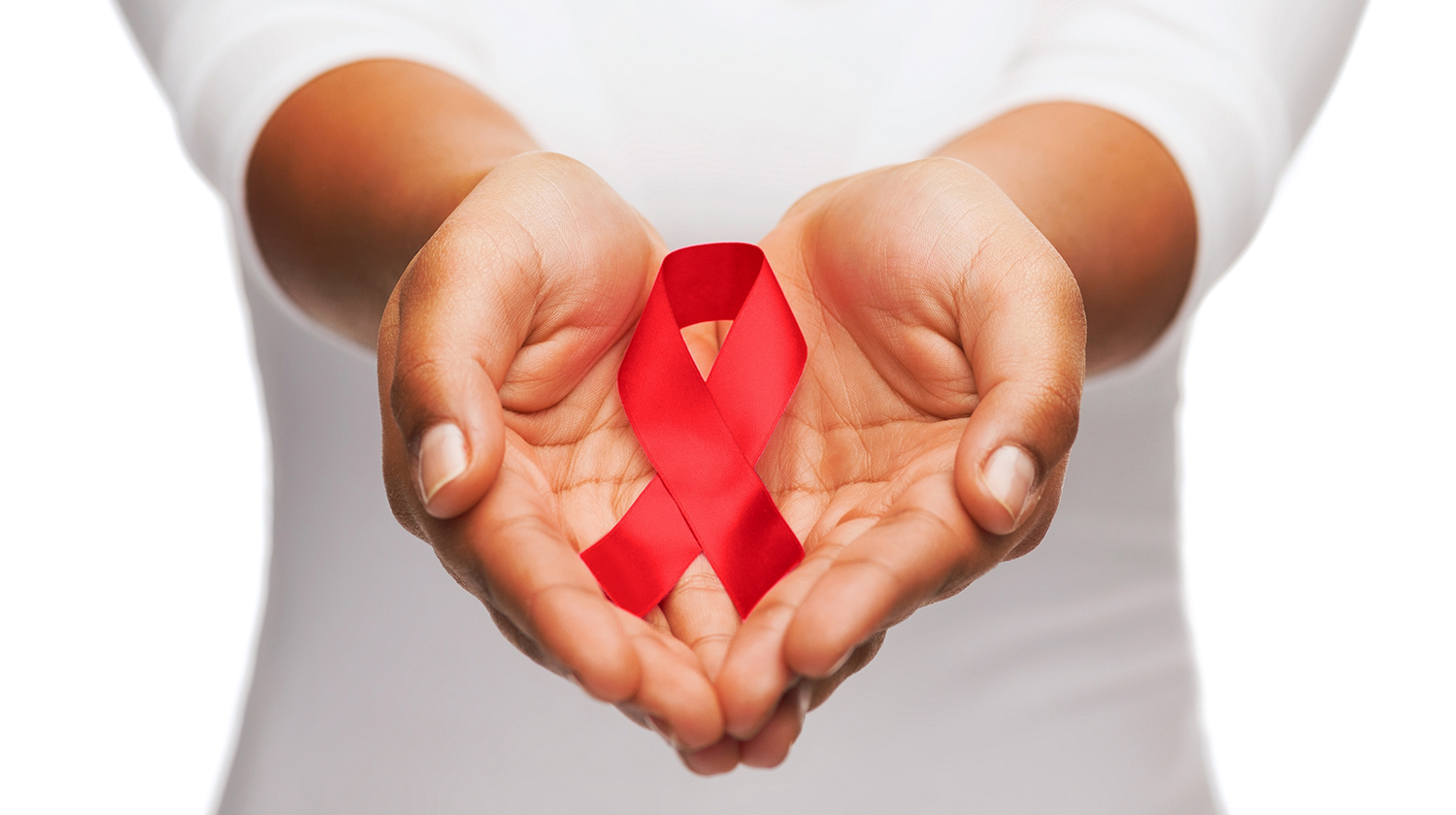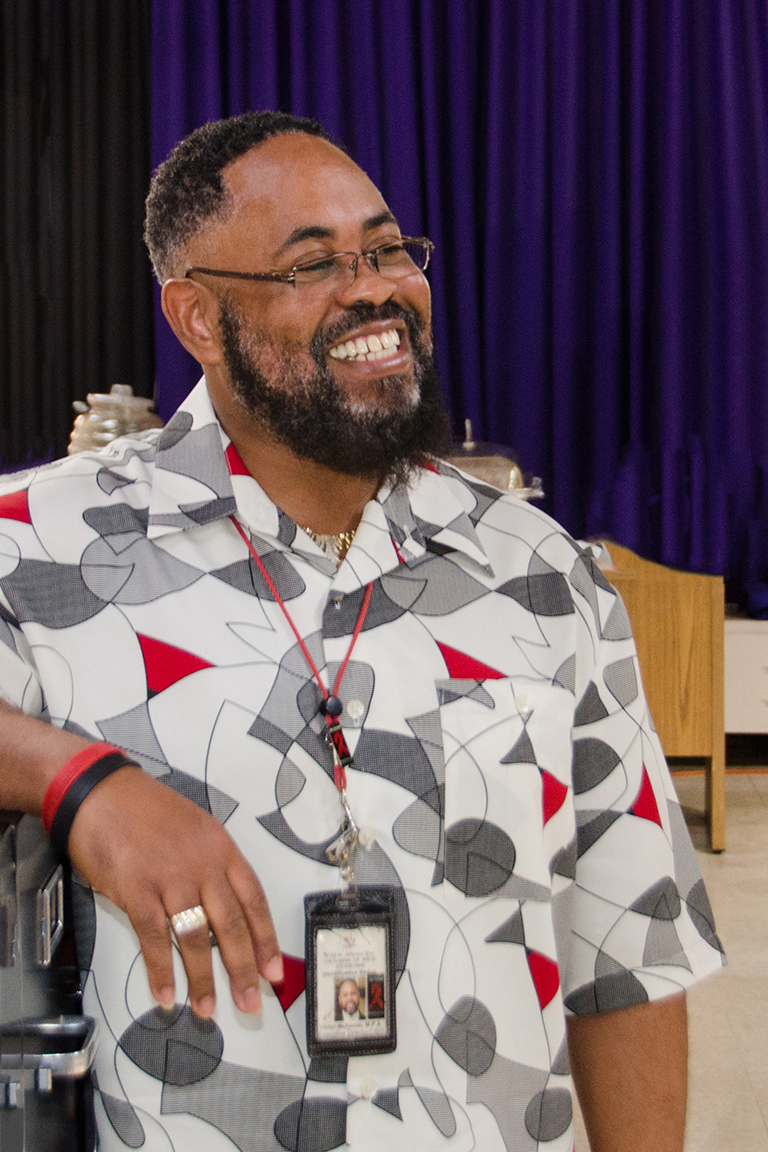
“For a lot of our clients, they felt they had zero, then they became infected with HIV, and felt they had less.”
For the past 28 years, Victor McKamie (’98, B.A., sociology; ’01, M.S., public administration), executive director and CEO of Minority AIDS Project (MAP) in Los Angeles, and his colleagues have been successfully showing their clients with that feeling of having “less” that they have so much “more;” more to accomplish, more to give, and more reason to live.
The not-for-profit organization was founded in 1985 by Archbishop Carl Bean and members of Unity Fellowship of Christ Church in Los Angeles California. It is the first community-based HIV/AIDS organization established and managed by people of color in the United States. Those early days of the HIV/AIDS crisis were an anxious time, when now-debunked myths such as contracting the disease by sitting on a public toilet seat and virus-spreading mosquitos spread fear across the southland.

It was also a time when McKamie was a struggling and misguided teenager who was more prone to getting in trouble than worrying about a deadly epidemic.
“I grew up in South Central, and back then I was in a gang–a knucklehead who was a Blood member of the 79 Swans and doing stupid things,” said McKamie, who joined MAP in 1989 as a street outreach worker. He began running the organization in 2004. “I went to jail, and was placed in the [California] Youth Authority. Then messed up and went back again a second time for a total of five and a half-year sentence. As a juvenile, that’s considered a life sentence.”
McKamie admits he had “no excuses.” He grew up with loving parents, he says, and his family provided a great foundation for him to succeed. However, the stresses of being young in a low-income area, and being bussed out of his neighborhood to school–the San Fernando Valley–took its toll on him.
“I was dealing with racism in school, and gang stuff back in my hood, but that all changed the second time I went in the Youth Authority when I was introduced to real education, such as political science and the contemporary black experience,” said McKamie. “I started wondering, ‘what am I doing hanging around the block on the corner?’ So I started looking at life differently, developed some pride in who I was, and figured out what I wanted to do. Then I started feeling guilty for all the wrong that I had done.”
McKamie wanted to give back. He had developed what he calls an Afro-centric perspective of life, and sought to be on the vanguard of something for his community. He knew HIV/AIDS was running rampant through South L.A., but was more focused on finding his calling.
“Things changed when Dr. Carl Rowe, a consultant of the probation department, recommended Minority AIDS Project as a non-profit that would be good for guys getting out of Youth Authority,” he said. “When I first walked through the doors I didn’t know anything about the organization, just that they worked with HIV and AIDS. And that I wasn’t afraid.”
At MAP, McKamie quickly learned a lot about the epidemic, and those in his community who were most affected.
“I began to understand the tribulations of heterosexuals, homosexuals, and transgender people,” he said. “My compassion for all people grew, and my passion for helping them remains just as strong today.”
To get involved or provide support to Minority AIDS Project, please visit www.minorityaidsproject.org or call (323) 936-4949.
Back then, MAP occasionally needed to bend–or break–the law to benefit its clients, and a community frozen in fear by the growing disease.
“We were doing needle exchange when it was illegal. Others jumped on it in 1992, but we started doing it in 1989,” said McKamie. “We were passing out bleach and needles to people who nobody else wanted to work with, and some police gave us a pass because they knew it was a good thing. We were downtown; we were on Skidrow, we were working with the least of them. That’s where a lot of the original success stories came from.”
New success stories are still being told today as MAP continues to serve people of color at all socio-economic levels who have contracted HIV/AIDS, or are at risk of exposure. It has served more than 250,000 people who oftentimes are left out of mainstream health and social services.
One of those success stories was called Youth Employment Services (YES), a gang prevention program McKamie developed and coordinated with members of the rival gangs the Bloods and the Crips. Launched in 1992 after the Los Angeles riots, the program was originally funded by the federal government, but later supported by rapper and actor Ice Cube. The program was funded for four years, and Ice Cube continues to support MAP through various activities.
“I was able to train the gang members, which provided me with street outreach workers/health educators familiar with the ‘hood’ and not afraid to hit the alleys and needle-shooting cages where at-risk populations congregate,” said McKamie. MAP has also received funding from Magic Johnson, Mary J. Blige, the Elizabeth Taylor AIDS Foundation, and other iconic individuals and groups over the years to support its programs.
Even with his dedicated and compassionate staff, McKamie must still wear “five hats” to ensure MAP carries out its mission to the fullest. Funded primarily by government programs through the Los Angeles County Department of Public Health Office of AIDS Programs and Policy, and a group of dedicated private donors who send money regularly, the organization still struggles at times to raise the funds it needs.
“The mental health aspect of our services are extremely important. Unfortunately, that was one of the first things that was defunded,” McKamie explained. “But I have some great staff who have stayed on anyway. They love what they do and the challenge of helping people resolve their emotional conflicts.”
Through the nearly 30 years at MAP, McKamie has remained committed to connecting with MAP’s clients, and helping some of the most marginalized people in society, who are found both in Los Angeles and across the country.
“There are so many remnants to peel back, from slavery and abuse, to drugs and poverty, for them to start to take care of themselves. Mental health is a key piece to a lot of this. We work to change their mindsets in regards to risky behaviors,” said McKamie. “Nurturing self-esteem is everything when it comes to our clients. So when someone turns his or her life around, it’s a beautiful thing. I feel the joy when that happens in every ounce of my body.”